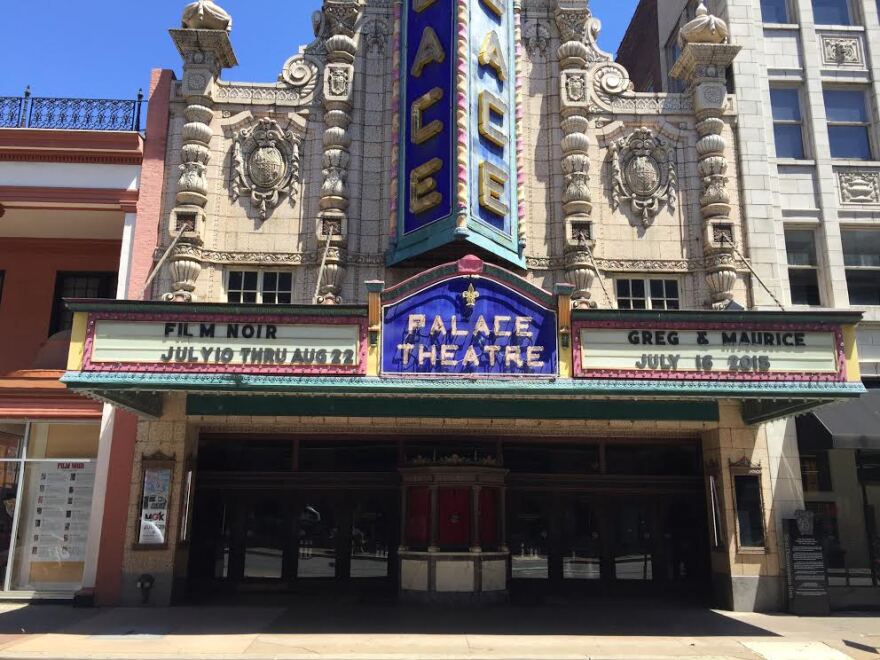On hot summer days, Louisvillians take refuge in air-conditioned homes and businesses. That wasn't always an option.
Before air conditioning became common, only one type of building was air conditioned: the movie theater.
In the 1920s, people flocked to watch films in grand movie theaters. But business would drop off as the temperatures rose, said Nick Morgan, a principal at Kentucky engineering firm Shrout Tate Wilson.
“The movie theater industry in particular basically had no attendance at all in the hot summer months,” he said.
“Historically, if you look back at Willis Carrier who is, you know, known in our industry as the father of air conditioning, he basically air-conditioned the first theater way back in the day.”
In 1925, The Rivoli Theater in New York City’s Times Square approached Carrier to install the very first unit. Patrons flocked to see movies in cool comfort, and Carrier’s wildly successful invention is now credited with fostering the summer blockbuster.
Ninty yearslater, air conditioning is practically ubiquitous in the U.S.—but movie theaters are still notoriously cold, whether or not patrons desired it.
Ja’Maya Johnson recently left Cinemark Mall St. Matthews wishing she’d brought an extra layer.
“I always wish I had a sweatshirt or something whenever I go to the movies, because, well, a lot of times it’s freezing,” she said.
Also at Mall St. Matthews, Holly Murray said she found herself shivering at one point during the movie.
Whether in the theater or the grocery store, “You have to layer even in the summertime to be comfortable,” she said.
Polled local theaters generally keep their thermostats in the 60s or low 70s. A representative from Cinemark Mall St. Matthews says the theaters there are kept around 66 degrees. Village 8, which mostly offers discount movies, spends less on air-conditioning: those theaters are kept at 73 degrees.
Engineer Nick Morgan said that theaters cool their buildings in anticipation of full capacity.
“They really get a bad rap because they’re anticipating to have, you know, three or four hundred people, potentially, to come and sit in the movies, and they can’t wait until everyone gets in there and then turn the system on,” he said.
But because theaters are rarely completely full, it’s easy for patrons to get cold.
There are some people that savor that, and even plan a trip to the movies to cool off. They're people like Debbie Johnson, who said she came “just kind of to get out of the heat, to kind of cool off.”
Gordon Newton was grateful to spend some time out of the heat.
“It’s really comfortable. It’s like 90 outside and 101 percent humidity, so it’s kind of nice to come into a nice, comfortable, dark place and see a good show,” he said.
The Department of Energy recommends that home air conditioners are kept at or above 78 degrees, but Morgan said engineers prepare for customers to seek and demand temperatures much lower than that.
“For inside buildings, oftentimes as design engineers we’re shooting for the 70-72 sort of range, which seems to be for the most part satisfying to the bulk of building users,” Morgan said.
According to Duke Energy, a three-degree uptick in temperature from 73 to 76 degrees can save home air-conditioners up to 30 percent of energy.
But as commercial pressures rise and extreme heat is likely to intensify due to climate change, many expect theaters in the summer will stay as they’ve been for 90 years now: cold.
Featured image by Henrietta Reily.

